-
 Bitcoin
Bitcoin $114800
-3.31% -
 Ethereum
Ethereum $3641
-5.84% -
 XRP
XRP $2.948
-6.36% -
 Tether USDt
Tether USDt $0.9998
-0.03% -
 BNB
BNB $772.4
-3.97% -
 Solana
Solana $169.1
-6.68% -
 USDC
USDC $0.9999
-0.01% -
 Dogecoin
Dogecoin $0.2056
-8.09% -
 TRON
TRON $0.3247
-0.18% -
 Cardano
Cardano $0.7239
-7.43% -
 Hyperliquid
Hyperliquid $39.71
-8.60% -
 Stellar
Stellar $0.3912
-7.84% -
 Sui
Sui $3.510
-10.17% -
 Chainlink
Chainlink $16.59
-8.03% -
 Bitcoin Cash
Bitcoin Cash $560.5
-3.65% -
 Hedera
Hedera $0.2464
-10.08% -
 Avalanche
Avalanche $22.03
-7.87% -
 Ethena USDe
Ethena USDe $1.001
-0.02% -
 UNUS SED LEO
UNUS SED LEO $8.947
0.21% -
 Toncoin
Toncoin $3.389
-2.58% -
 Litecoin
Litecoin $104.9
-5.23% -
 Shiba Inu
Shiba Inu $0.00001220
-6.67% -
 Polkadot
Polkadot $3.652
-6.10% -
 Uniswap
Uniswap $9.213
-9.05% -
 Monero
Monero $307.2
-2.93% -
 Dai
Dai $0.9998
-0.02% -
 Bitget Token
Bitget Token $4.367
-2.89% -
 Cronos
Cronos $0.1374
-6.80% -
 Pepe
Pepe $0.00001056
-8.65% -
 Aave
Aave $257.3
-7.31%
Exodus wallet transfer delay. Is the network switch effective?
Exodus wallet users may face transfer delays due to network congestion, fees, and blockchain type; switching networks can help but isn't always effective.
May 15, 2025 at 11:28 pm
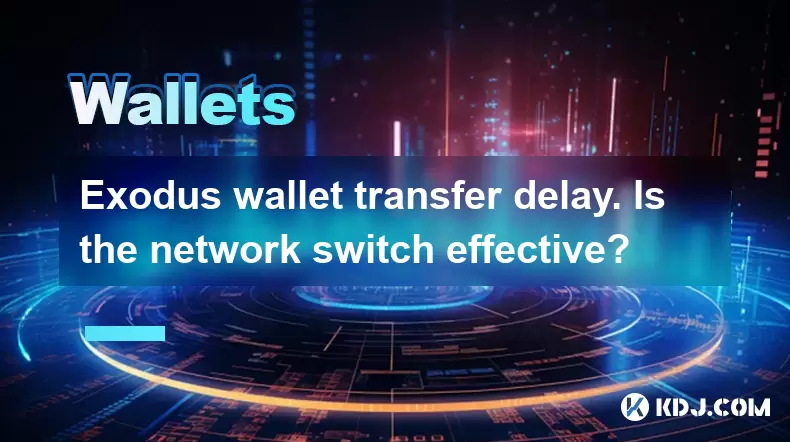
Understanding Exodus Wallet Transfer Delays
When using the Exodus wallet, users might occasionally experience delays in their cryptocurrency transfers. These delays can be attributed to various factors, including network congestion, transaction fees, and the specific blockchain being used. Understanding the root causes of these delays is crucial for managing expectations and taking appropriate actions.
Factors Contributing to Transfer Delays
Several elements can influence the speed of transactions in the Exodus wallet. Network congestion is a primary factor; when many users are trying to send transactions on a particular blockchain, it can lead to slower processing times. Transaction fees also play a significant role; higher fees can incentivize miners to prioritize your transaction, leading to faster processing. Additionally, the specific blockchain used for the transfer can affect speed, as different blockchains have varying capacities and processing times.
The Role of Network Switch in Exodus Wallet
The Exodus wallet offers a feature called network switch, which allows users to change the blockchain network they are using for their transactions. This can be particularly useful when facing delays on one network. By switching to a less congested network, users might experience faster transaction times. However, it's important to understand that this switch is not always a guaranteed solution and depends on the specific circumstances of the network at the time.
How to Switch Networks in Exodus Wallet
To utilize the network switch feature in the Exodus wallet, follow these steps:
- Open the Exodus wallet on your device.
- Navigate to the wallet for the cryptocurrency you wish to transfer.
- Click on the "Send" button to initiate a transfer.
- Look for the "Network" option in the send menu. This might be labeled differently depending on the cryptocurrency.
- Select the desired network from the list provided. For example, you might switch from the Ethereum mainnet to a layer 2 solution like Polygon.
- Enter the recipient's address and the amount you wish to send.
- Adjust the transaction fee if necessary, to prioritize your transaction.
- Confirm the transaction and wait for it to process on the new network.
Effectiveness of Network Switch in Reducing Delays
The effectiveness of switching networks in the Exodus wallet to reduce transfer delays can vary. If the delay is due to high congestion on the original network, switching to a less congested network can indeed speed up the process. However, if the delay is due to other factors such as low transaction fees or issues with the recipient's wallet, switching networks might not have the desired effect.
Considerations When Using Network Switch
When considering a network switch in the Exodus wallet, it's important to weigh the potential benefits against the risks. Some networks might have lower fees but could also have less security or fewer users, which could impact the overall safety and liquidity of your transaction. Additionally, not all cryptocurrencies support network switching, so it's essential to check the compatibility of the asset you are trying to transfer.
Monitoring and Managing Transfer Delays
To effectively manage and monitor transfer delays in the Exodus wallet, users can take several steps. Keeping an eye on network congestion through blockchain explorers and other tools can help anticipate potential delays. Adjusting transaction fees based on current network conditions can also improve processing times. Additionally, staying informed about updates and changes to the networks you use can provide insights into potential improvements or issues that might affect your transfers.
Frequently Asked Questions
Q: Can I switch networks for any cryptocurrency in the Exodus wallet?
A: Not all cryptocurrencies in the Exodus wallet support network switching. It depends on the specific asset and the networks available for that asset. Always check the available options within the wallet before attempting to switch.
Q: Will switching networks always reduce transfer delays?
A: No, switching networks will not always reduce transfer delays. The effectiveness depends on the cause of the delay and the current state of the new network you are switching to.
Q: How can I check the current congestion of a blockchain network?
A: You can check the current congestion of a blockchain network using blockchain explorers like Etherscan for Ethereum or Blockchain.com for Bitcoin. These platforms provide real-time data on network activity and transaction times.
Q: Are there any risks associated with switching networks in the Exodus wallet?
A: Yes, there are risks associated with switching networks. These include potential security issues with less established networks, liquidity concerns, and the possibility that the new network might also be congested. Always research the network you are switching to before making a decision.
Disclaimer:info@kdj.com
The information provided is not trading advice. kdj.com does not assume any responsibility for any investments made based on the information provided in this article. Cryptocurrencies are highly volatile and it is highly recommended that you invest with caution after thorough research!
If you believe that the content used on this website infringes your copyright, please contact us immediately (info@kdj.com) and we will delete it promptly.
- Bitcoin, Ethereum, and Investor Behavior: A New York Minute on Crypto Trends
- 2025-08-01 15:10:12
- Tether's Q2 Triumph: USDT Supply Soars Amidst Profit Surge!
- 2025-08-01 15:10:12
- Ethereum ETF Holdings: A Corporate Treasury Revolution?
- 2025-08-01 15:30:12
- Ethereum's Wild Ride: Funding Rates, Price Drops, and Retail to the Rescue!
- 2025-08-01 15:30:12
- Ethereum Under Pressure: Crypto Market Drop Explained
- 2025-08-01 15:35:11
- Ethereum ETF Mania: Inflows Surge, Market Rises, What's Next?
- 2025-08-01 15:35:11
Related knowledge
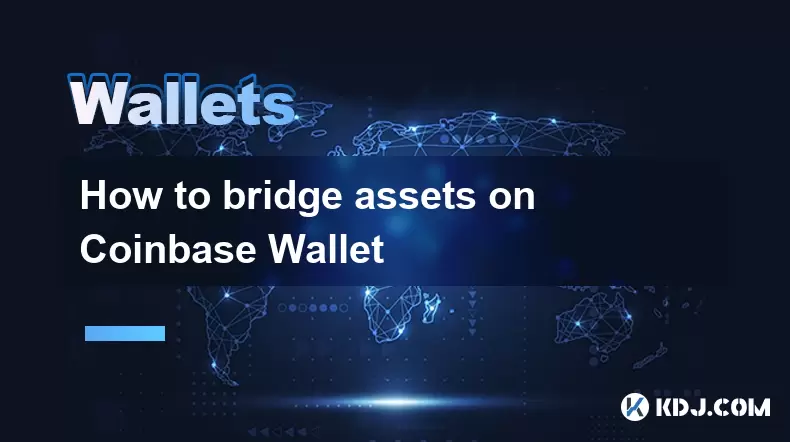
How to bridge assets on Coinbase Wallet
Jul 27,2025 at 01:14am
What Is Asset Bridging in the Context of Coinbase Wallet?Bridging assets refers to the process of transferring tokens from one blockchain network to a...
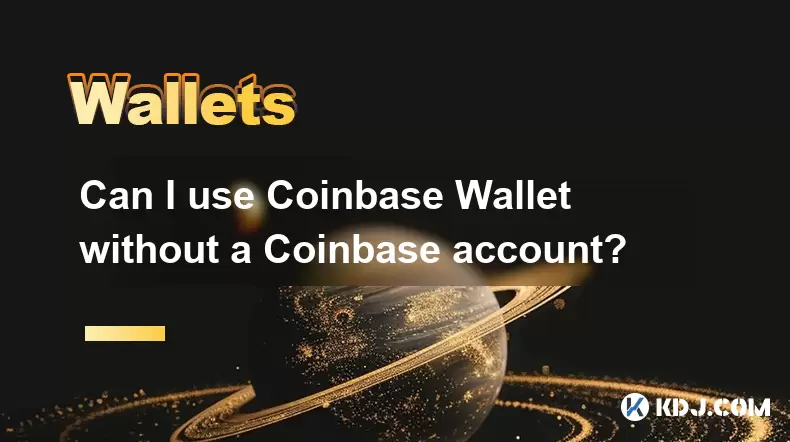
Can I use Coinbase Wallet without a Coinbase account?
Jul 18,2025 at 04:35am
What is Coinbase Wallet?Coinbase Wallet is a self-custodial wallet that allows users to store, send, and receive various cryptocurrencies directly on ...
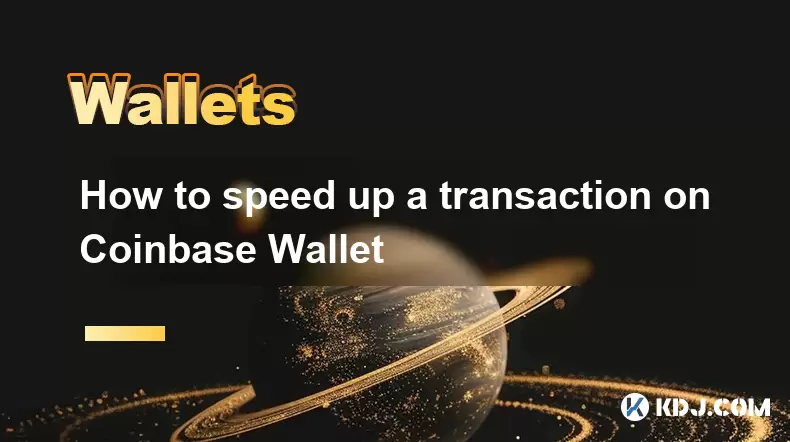
How to speed up a transaction on Coinbase Wallet
Jul 27,2025 at 07:14am
Understanding Transaction Speed on Coinbase WalletWhen using Coinbase Wallet, users may occasionally encounter delays in transaction confirmations. Th...
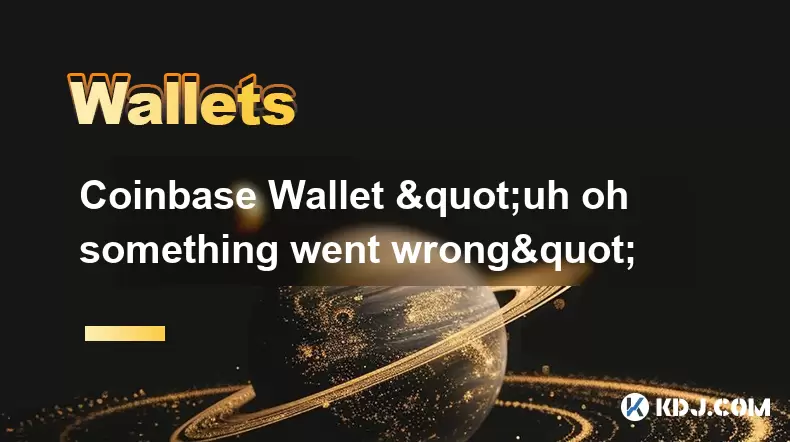
Coinbase Wallet "uh oh something went wrong"
Jul 20,2025 at 10:00am
Understanding the Coinbase Wallet Error: 'Uh Oh, Something Went Wrong'If you're a Coinbase Wallet user, encountering the error message 'Uh Oh, Somethi...
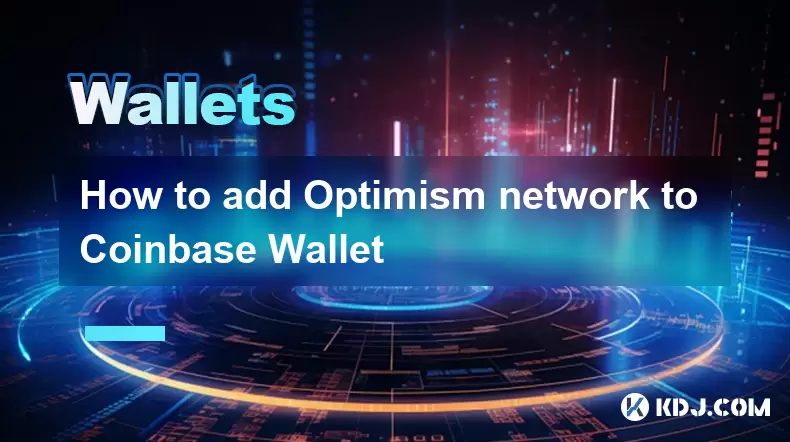
How to add Optimism network to Coinbase Wallet
Jul 20,2025 at 05:21am
What is the Optimism Network?The Optimism network is a Layer 2 scaling solution built on top of the Ethereum blockchain. It aims to enhance transactio...
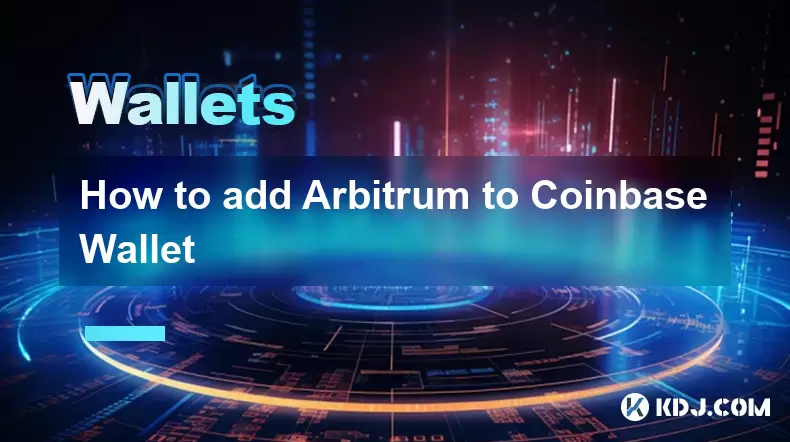
How to add Arbitrum to Coinbase Wallet
Jul 18,2025 at 03:00pm
Understanding Arbitrum and Its Integration with Coinbase WalletArbitrum is a layer-2 scaling solution developed by Offchain Labs to enhance the speed ...

How to bridge assets on Coinbase Wallet
Jul 27,2025 at 01:14am
What Is Asset Bridging in the Context of Coinbase Wallet?Bridging assets refers to the process of transferring tokens from one blockchain network to a...

Can I use Coinbase Wallet without a Coinbase account?
Jul 18,2025 at 04:35am
What is Coinbase Wallet?Coinbase Wallet is a self-custodial wallet that allows users to store, send, and receive various cryptocurrencies directly on ...

How to speed up a transaction on Coinbase Wallet
Jul 27,2025 at 07:14am
Understanding Transaction Speed on Coinbase WalletWhen using Coinbase Wallet, users may occasionally encounter delays in transaction confirmations. Th...

Coinbase Wallet "uh oh something went wrong"
Jul 20,2025 at 10:00am
Understanding the Coinbase Wallet Error: 'Uh Oh, Something Went Wrong'If you're a Coinbase Wallet user, encountering the error message 'Uh Oh, Somethi...

How to add Optimism network to Coinbase Wallet
Jul 20,2025 at 05:21am
What is the Optimism Network?The Optimism network is a Layer 2 scaling solution built on top of the Ethereum blockchain. It aims to enhance transactio...

How to add Arbitrum to Coinbase Wallet
Jul 18,2025 at 03:00pm
Understanding Arbitrum and Its Integration with Coinbase WalletArbitrum is a layer-2 scaling solution developed by Offchain Labs to enhance the speed ...
See all articles

























































































